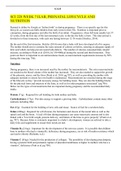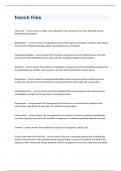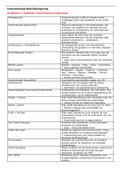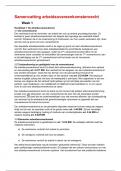Cas
SCI 228 WEEK 7 ILAB, PRENATAL LIFECYCLE AND NUTRITION
- Cours
- SCI 228
- Établissement
- Devry University
SCI 228 WEEK 7 ILAB, PRENATAL LIFECYCLE AND NUTRITION Prenatal is define by Google as “before birth” or during pregnancy. There is no specific age for this lifecycle, as women can birth children from early teens to their 50s. Nutrition is important prior to conception, during pregnancy and a...
[Montrer plus]






